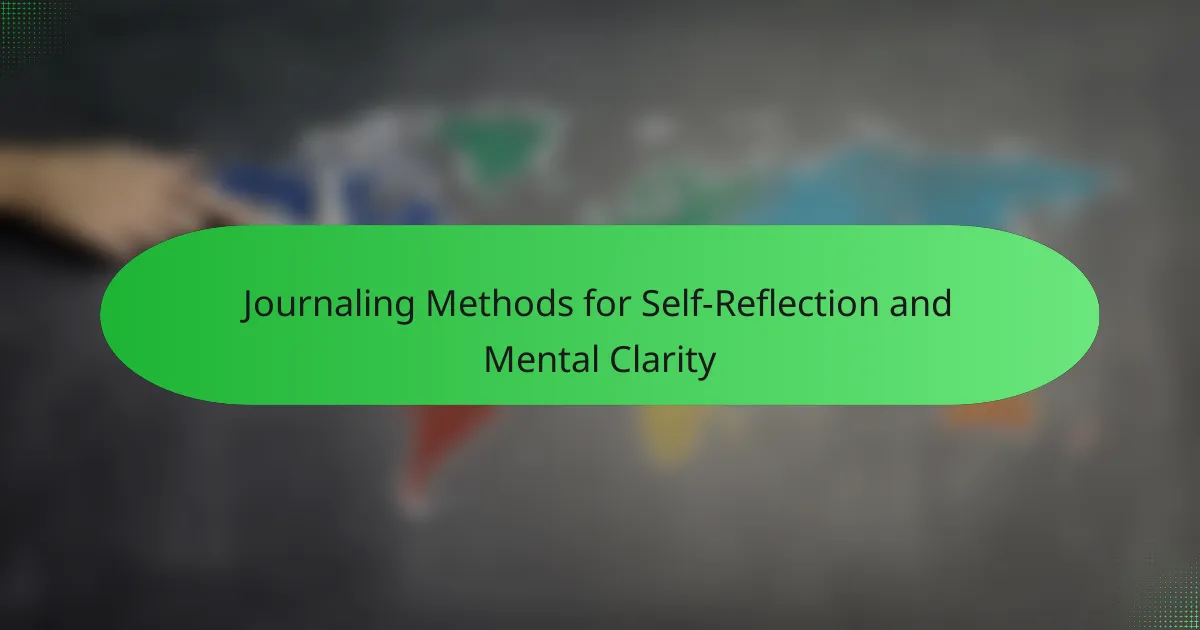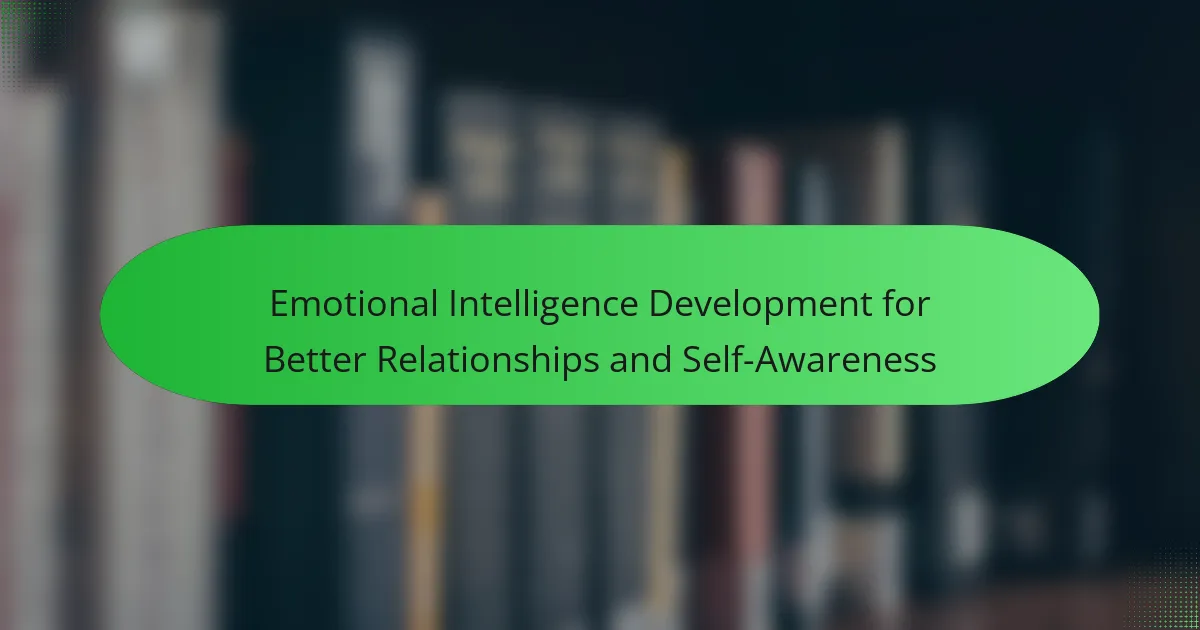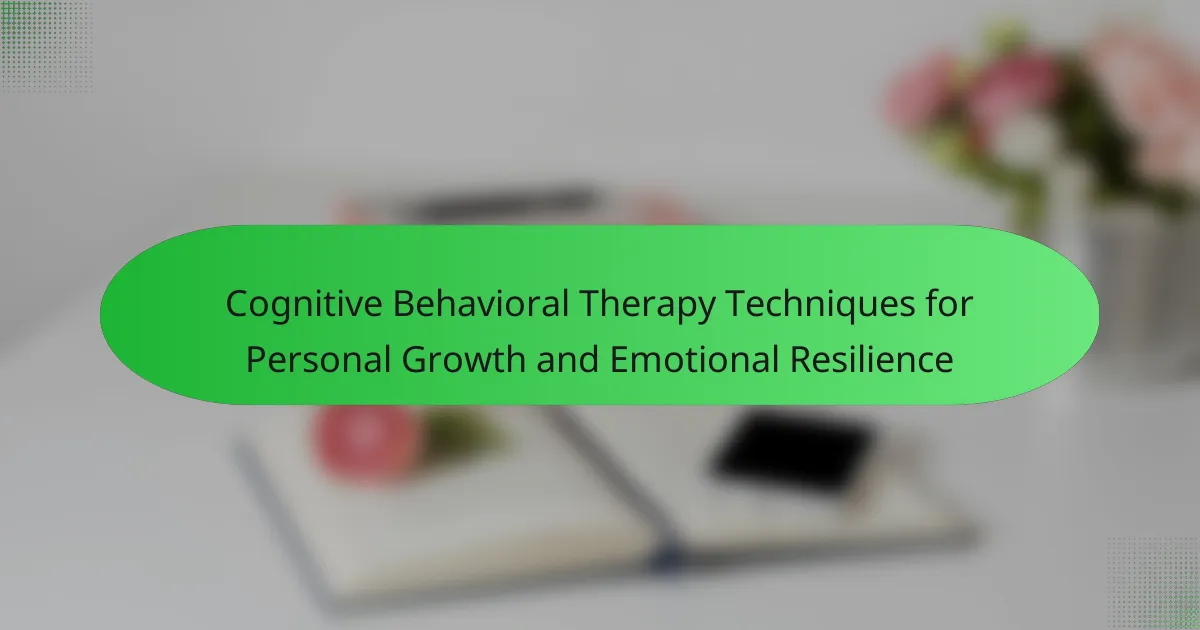Mindfulness practices effectively reduce stress and enhance well-being. Techniques like meditation, deep breathing, and yoga promote relaxation and emotional regulation. Cultural variations influence mindfulness approaches, offering diverse techniques for stress relief. Despite challenges in implementation, scientific research supports the effectiveness of mindfulness for improving mental health outcomes.
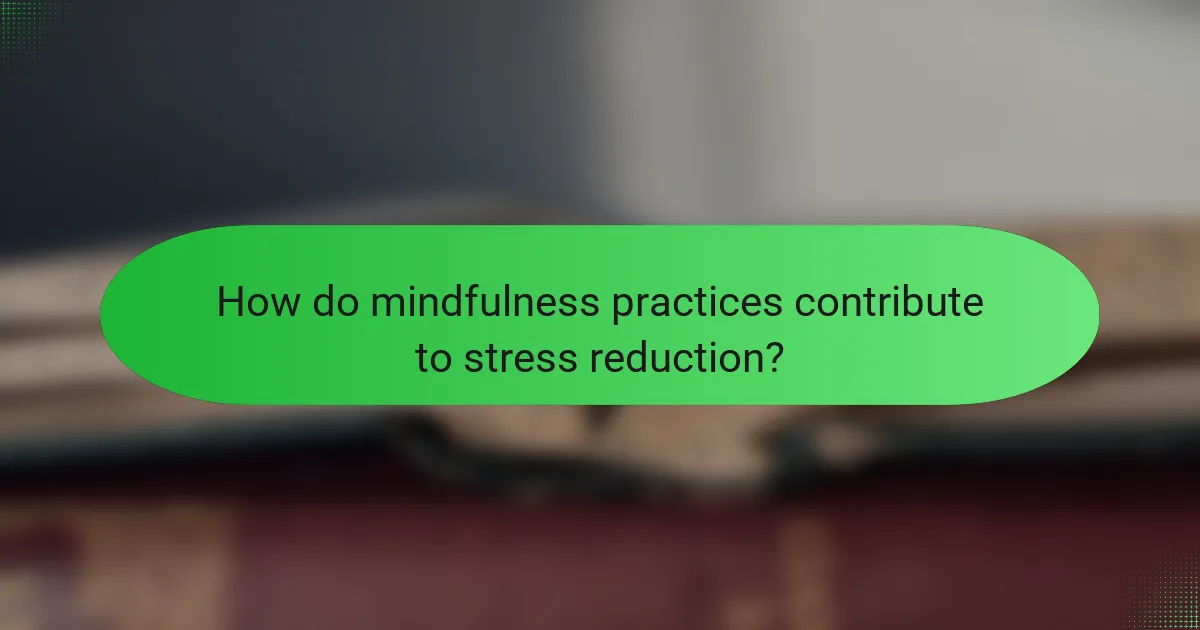
How do mindfulness practices contribute to stress reduction?
Mindfulness practices significantly reduce stress by promoting relaxation and enhancing emotional regulation. Techniques such as meditation, deep breathing, and body scans help individuals focus on the present moment, which decreases anxiety. Research indicates that regular mindfulness practice can lower cortisol levels, a key stress hormone. Additionally, mindfulness fosters self-awareness, allowing individuals to identify stress triggers and respond more effectively. This proactive approach leads to improved overall well-being and resilience against stressors.
What are the psychological benefits of mindfulness for stress management?
Mindfulness practices significantly enhance stress management by promoting emotional regulation, reducing anxiety, and fostering a sense of calm. These practices cultivate self-awareness, which helps individuals identify stress triggers.
Research indicates that mindfulness can lower cortisol levels, leading to decreased stress responses. Regular mindfulness meditation has been shown to improve overall well-being by enhancing focus and resilience. Additionally, mindfulness encourages a present-focused mindset, reducing rumination about past or future stressors.
Incorporating mindfulness into daily routines can lead to long-term psychological benefits, making it a valuable tool for stress reduction.
Which mindfulness techniques are most effective for reducing anxiety?
Mindfulness techniques such as deep breathing, body scan meditation, and mindful movement are effective for reducing anxiety. These practices promote relaxation and enhance awareness of the present moment.
Deep breathing exercises focus on slow, controlled breaths, reducing physical tension. Body scan meditation helps individuals connect with their bodies, identifying and releasing areas of stress. Mindful movement, like yoga or tai chi, combines physical activity with mindfulness, fostering a sense of calm.
Research indicates that regular practice of these techniques can lower anxiety levels significantly. For instance, a study found that participants practicing mindfulness meditation experienced a 30% reduction in anxiety symptoms over eight weeks.
Incorporating these mindfulness practices into daily routines can improve overall well-being and resilience against stress.
How does mindfulness influence physiological responses to stress?
Mindfulness significantly reduces physiological stress responses. It activates the parasympathetic nervous system, lowering heart rate and cortisol levels. Regular mindfulness practice can enhance emotional regulation, improve immune function, and promote overall well-being. Studies show that participants practicing mindfulness report reduced anxiety and improved resilience to stress.
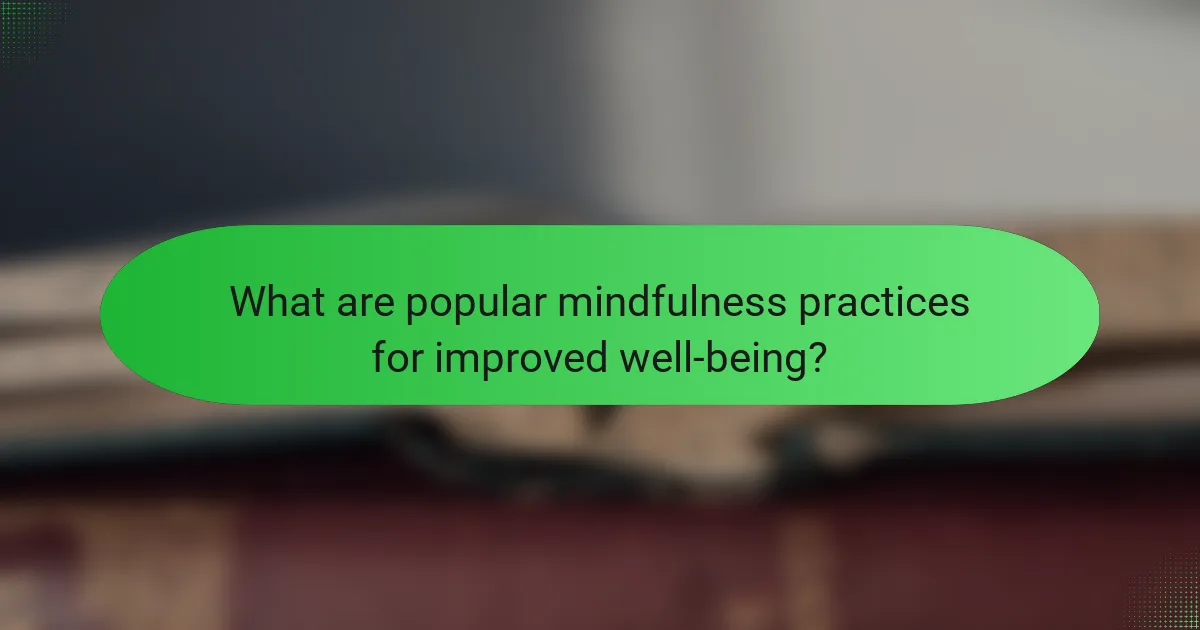
What are popular mindfulness practices for improved well-being?
Popular mindfulness practices for improved well-being include meditation, deep breathing, and yoga. These techniques reduce stress and enhance mental clarity.
Meditation involves focused attention and awareness, fostering relaxation and emotional balance. Research shows that just 10 minutes of daily meditation can significantly lower anxiety levels.
Deep breathing exercises promote calmness by activating the body’s relaxation response. Practicing deep breathing for a few minutes can reduce cortisol levels, enhancing overall well-being.
Yoga combines physical movement with mindfulness, improving flexibility and reducing tension. Regular yoga practice has been linked to decreased symptoms of depression and anxiety.
How does meditation enhance emotional resilience?
Meditation enhances emotional resilience by fostering mindfulness and self-awareness. It helps individuals manage stress, reduce anxiety, and improve overall emotional well-being. Regular practice cultivates a greater understanding of emotions, leading to healthier responses during challenging situations. Research indicates that mindfulness meditation can increase emotional regulation and decrease reactivity, promoting a stable emotional state.
What role does mindful breathing play in stress relief?
Mindful breathing significantly aids in stress relief by promoting relaxation and enhancing emotional regulation. This practice encourages deep, slow breaths, which activate the body’s relaxation response. As a result, mindful breathing reduces cortisol levels, lowers heart rate, and improves overall mental clarity. Regular engagement in this technique can lead to long-term improvements in stress management and well-being.
Which mindfulness exercises can be integrated into daily routines?
Mindfulness exercises can easily fit into daily routines to enhance well-being. Incorporate these practices:
1. Deep breathing for a few minutes during breaks.
2. Mindful walking while observing surroundings.
3. Body scan meditation to increase body awareness.
4. Gratitude journaling before bedtime.
5. Mindful eating by focusing on flavors and textures.
These techniques promote relaxation and stress reduction.

What unique aspects differentiate mindfulness practices across cultures?
Mindfulness practices vary across cultures due to unique historical, spiritual, and social influences. Each culture emphasizes different techniques and philosophies.
For instance, in Buddhism, mindfulness focuses on meditation and awareness of the present moment. In contrast, Western practices often incorporate cognitive behavioral techniques, blending mindfulness with psychological principles.
Additionally, cultural rituals and community involvement shape the practice. Indigenous cultures may integrate nature and community into mindfulness, while modern urban settings might emphasize individual practices.
These distinctions highlight the rich diversity in mindfulness approaches, enhancing stress reduction and well-being through culturally relevant methods.
How do Eastern traditions influence modern mindfulness approaches?
Eastern traditions significantly shape modern mindfulness approaches by emphasizing awareness and presence. Techniques such as meditation and breathing exercises foster mental clarity and emotional regulation. These practices, rooted in Buddhism and Hinduism, promote holistic well-being. Research indicates that integrating Eastern mindfulness can reduce stress and enhance overall health. As a result, many contemporary programs adopt these ancient practices to improve mental health outcomes.
What cultural adaptations of mindfulness are emerging in Western contexts?
Emerging cultural adaptations of mindfulness in Western contexts include practices that blend traditional techniques with contemporary lifestyles. These adaptations focus on accessibility and practicality, integrating mindfulness into daily routines. For instance, mindfulness apps offer guided meditations tailored for busy schedules. Workplace mindfulness programs promote stress reduction and enhance employee well-being. Schools are incorporating mindfulness into curricula to improve focus and emotional regulation among students. Additionally, community-based mindfulness initiatives foster social connections and collective well-being. These adaptations reflect a growing recognition of mindfulness’s benefits across various aspects of life.
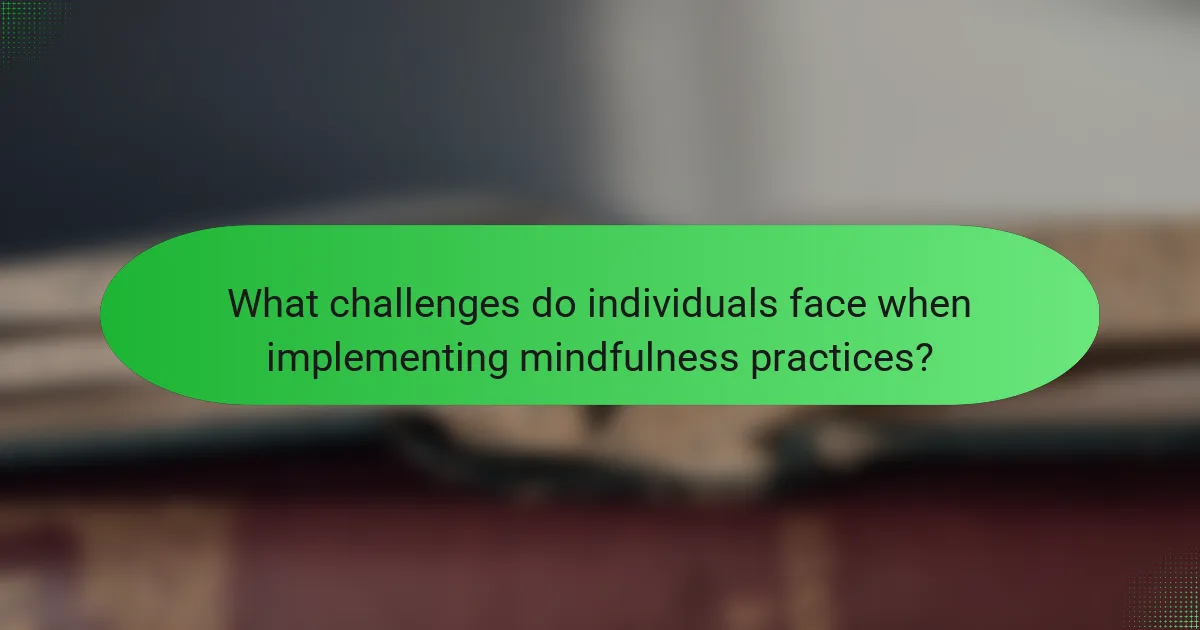
What challenges do individuals face when implementing mindfulness practices?
Individuals face several challenges when implementing mindfulness practices, including time constraints, difficulty in maintaining focus, and skepticism about effectiveness. Many people struggle to carve out time in their busy schedules for consistent practice. Additionally, distractions can hinder concentration, making it hard to cultivate a mindful state. Skepticism may arise from a lack of immediate results, leading to frustration and abandonment of the practice.
How can beginners overcome common obstacles in mindfulness practice?
Beginners can overcome common obstacles in mindfulness practice by establishing a routine, starting with short sessions, and practicing non-judgment. Consistency builds familiarity, while brief sessions prevent overwhelm. Non-judgmental awareness helps reduce frustration with distractions. Setting realistic expectations is essential for progress.
What misconceptions about mindfulness hinder its adoption?
Misconceptions about mindfulness can significantly hinder its adoption. Common myths include the belief that mindfulness is only about relaxation or that it requires extensive time commitment. Many people think mindfulness is a religious practice, which can deter those who prefer secular approaches. Additionally, some believe that mindfulness is a quick fix for stress, overlooking its need for consistent practice. These misconceptions can lead to resistance, preventing individuals from experiencing the stress reduction and improved well-being that mindfulness practices offer.
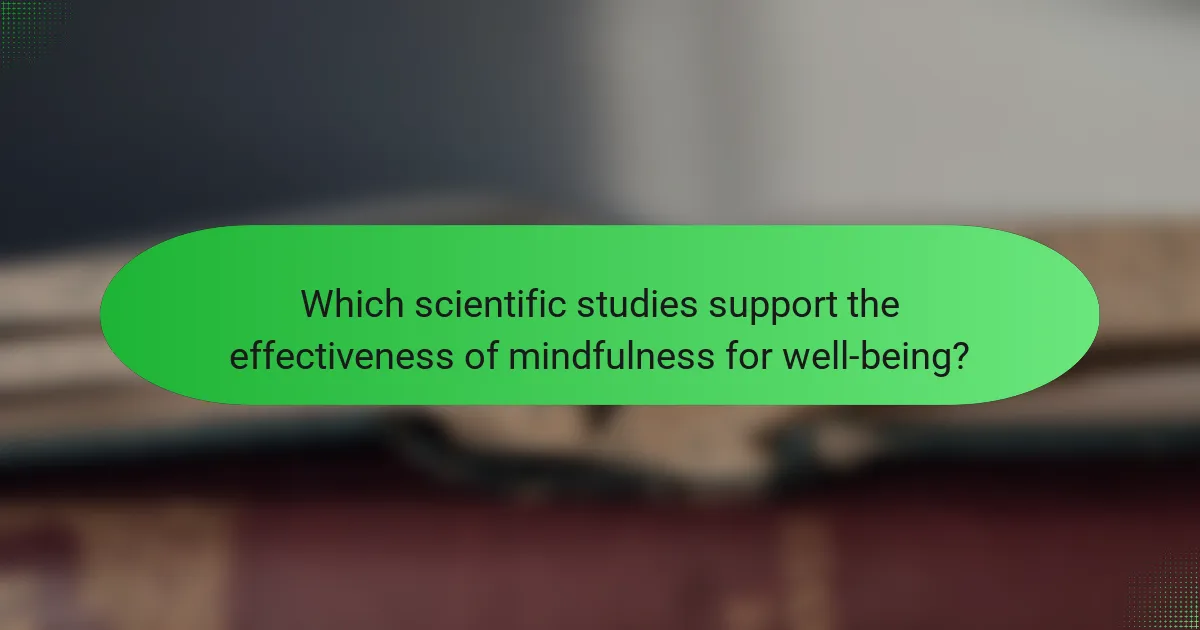
Which scientific studies support the effectiveness of mindfulness for well-being?
Numerous scientific studies support the effectiveness of mindfulness for enhancing well-being. Research indicates that mindfulness practices reduce stress and improve mental health outcomes. For instance, a meta-analysis published in JAMA Internal Medicine found that mindfulness meditation significantly decreases anxiety, depression, and pain. Another study in Psychological Science demonstrated that mindfulness training improves emotional regulation and resilience. Additionally, a randomized controlled trial in the journal Health Psychology showed that participants practicing mindfulness reported higher levels of life satisfaction. These findings collectively highlight mindfulness as a powerful tool for promoting well-being.
What findings have emerged from recent research on mindfulness and mental health?
Recent research shows mindfulness practices significantly enhance mental health by reducing stress and improving overall well-being. Studies indicate that regular mindfulness meditation decreases anxiety levels and promotes emotional regulation. One unique finding reveals that mindfulness can increase gray matter density in brain regions associated with emotional regulation and perspective-taking. Additionally, mindfulness-based interventions have demonstrated effectiveness in clinical settings, leading to reduced symptoms of depression and improved quality of life for participants.
How does mindfulness impact physical health outcomes according to studies?
Mindfulness practices significantly enhance physical health outcomes by reducing stress and promoting overall well-being. Studies indicate that regular mindfulness meditation can lower blood pressure, improve sleep quality, and boost immune function. For instance, a meta-analysis found that mindfulness-based interventions led to a 30% reduction in stress-related symptoms. Additionally, participants reported increased emotional regulation, which correlates with better physical health. Mindfulness training often results in lower cortisol levels, contributing to decreased anxiety and improved cardiovascular health.
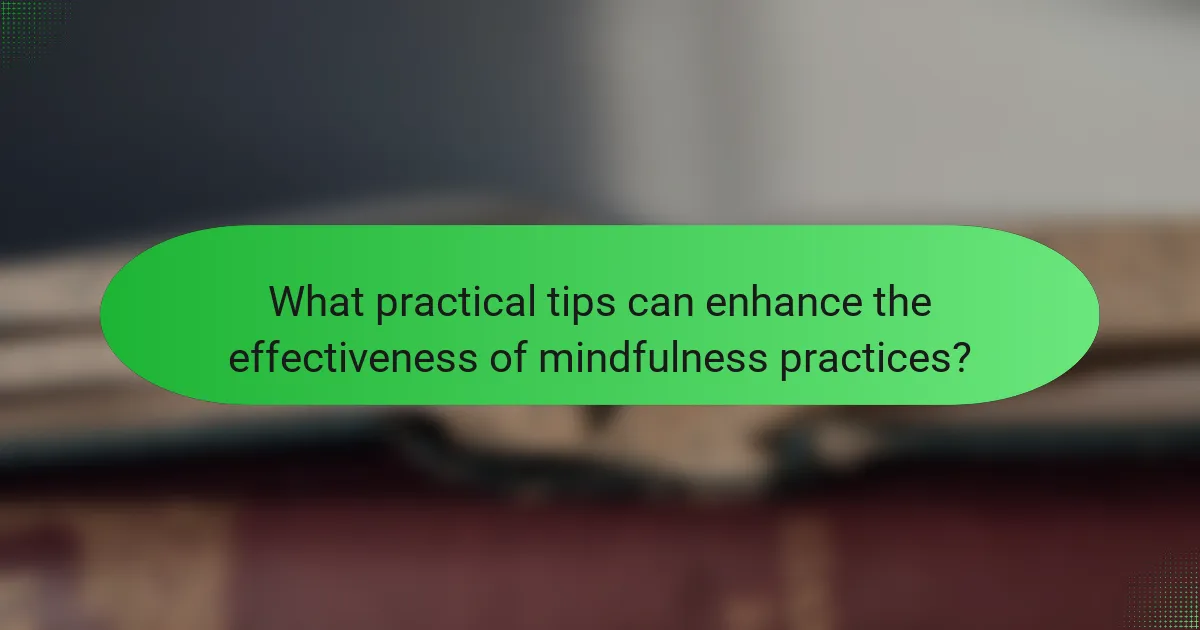
What practical tips can enhance the effectiveness of mindfulness practices?
To enhance the effectiveness of mindfulness practices, focus on consistency, environment, and technique. Establish a regular schedule for practice, as consistency reinforces the habit. Create a quiet and comfortable space to minimize distractions. Experiment with various techniques, such as guided meditations or mindful breathing, to find what resonates best. Incorporating movement, like yoga, can also deepen the experience. Lastly, consider journaling about your mindfulness journey to track progress and insights.
How can individuals create a conducive environment for mindfulness practice?
Individuals can create a conducive environment for mindfulness practice by establishing a quiet, comfortable space free from distractions. Incorporating natural elements, such as plants or natural light, enhances relaxation. Regularly scheduled practice times foster consistency. Utilizing supportive tools like cushions or mats can improve comfort and focus.
What are common mistakes to avoid when practicing mindfulness?
Common mistakes to avoid when practicing mindfulness include rushing the process, being overly critical of oneself, and neglecting consistency. These errors can hinder stress reduction and overall well-being.
Rushing through mindfulness exercises can lead to superficial engagement, reducing their effectiveness. Being overly critical can create anxiety, counteracting the benefits of mindfulness. Neglecting to practice regularly can diminish progress, making it harder to achieve lasting improvements.
To enhance mindfulness practice, focus on patience, self-compassion, and establishing a consistent routine. These adjustments can significantly improve the benefits derived from mindfulness.
Which resources can support ongoing mindfulness development?
Resources that support ongoing mindfulness development include apps, books, workshops, and online courses. These resources provide structured guidance and community support.
Popular mindfulness apps like Headspace and Calm offer guided meditations and progress tracking. Books such as “The Miracle of Mindfulness” by Thich Nhat Hanh provide foundational insights. Local workshops and retreats create immersive experiences that deepen practice. Online platforms like Coursera and Udemy offer courses tailored to various skill levels.
Consistent engagement with these resources enhances mindfulness skills, promoting stress reduction and improved well-being.
